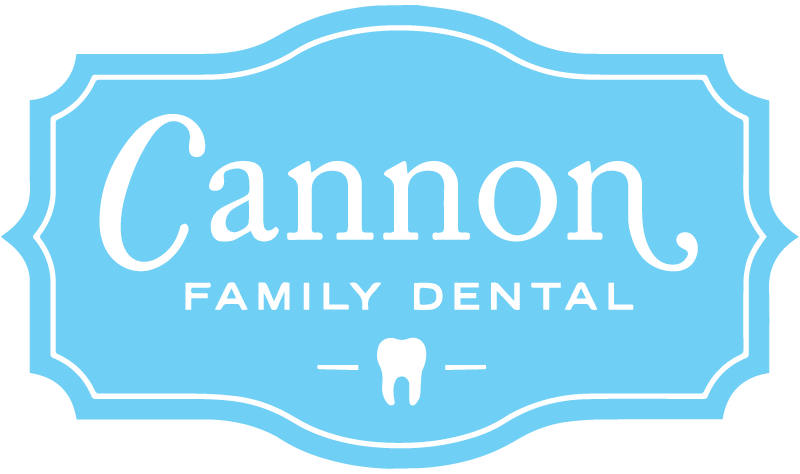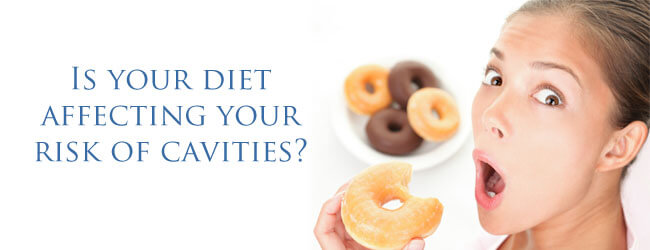Everything that enters our mouths in some way affects the health of our teeth and the tissues, especially our diet and food habits. The types of food we eat and when we eat them is definitely something to consider when assessing the health of your mouth.
One word I will use that will be good to know the definition of is cariogenic (karēəˈjenik), which is defined as: foods that lower the pH and are conducive to cavities. The reason it is good to know this definition is because cavities are a result of excess cariogenic foods – especially soft and sticky foods that cling to the teeth and encourage an accumulation of food. The degree of cariogenicity depends on many factors and three main factors that are important to evaluate with your own diet are the physical form & texture of your food, the frequency of use & how long food is in your mouth, and the sequence of food consumption.
First it is good to know what types of food are cariogenic, whether it is liquid, solid, sticky, or slow dissolving.
Liquids
First the liquids include:
- soft drinks
- fruit drinks
- cocoa
- sugar and honey in beverages
- nondairy creamers
- ice cream
- sherbet
- flavored or frozen yogurt
- pudding
- jello
Sold and Sticky Foods
Secondly are the solid and sticky foods:
- cakes
- cupcakes
- doughnuts
- sweet rolls
- potato chips
- pretzels
- canned fruit in syrup
- cookies
- chocolate candy
- caramels
- toffee
- jelly beans and other chewy candy
- dried fruit
- marshmallows
- jam/jelly
Slow Dissolving
Last are the slow dissolving:
- hard candies
- breath mints
- antacid tablets
- cough drops
With all these foods, keep in mind the textures because this effects how long it remains on your teeth.
Next, consider how frequent meals and snacks are eaten throughout the day and how many include cariogenic foods. If you are frequently ingesting cariogenic foods and beverages then you will often have this food debris remaining on your teeth which changes the overall pH of your mouth to an acidic state. The longer amount of time food and drinks are going in your mouth, the higher risk you are at receiving cavities.
Lastly, think of what order you consume foods. It is good to eat cariogenic foods at the beginning or middle of a meal so that non-cariogenic foods can help aid in removing food debris and keeping the pH of your mouth neutral. An example of this is eating cheese at the end of a meal which overall helps prevent the decrease in pH and production of acid in the mouth.
With all of these dietary habits to consider, a few tips to help lower your risk of cavities is:
- Drink water at the end of your meal to help rinse sugars from the tooth surface.
- Cut down on the frequency of between-meal sweets.
- Don’t sip constantly on sweetened beverages.
- Avoid using slowly dissolving items like hard candy, cough drops, etc.
- Eat more non-decay-promoting foods, such as low-fat cheese, raw vegetables, crunchy fruits, and nuts, especially at the end of your meal.
So hopefully you can use some of these tips and knowledge to plan your meal out a little better to help keep your risk of cavities lower. Remember that everything that enters our mouths in some way affects the health of our teeth and the tissues, especially our diet and food habits. So if your eating cariogenic foods remember to use these tips to reduce your risk of decay.


Please advise about fruit in particular. Are there any particular fruits you would recommend we avoid from a purely cariogenic perspective? I see several children who’s parents do not allow them to consume sweets/candy, but they have multiple cavities. The only snacks which we can Identify are fruit.
That is a great question. I have felt that a healthy diet consists of eating fresh foods (including fruit). A balanced diet of fruits, vegetables, whole grains, with sufficient proteins, vitamins, and a host of other components is essential. In my marathon training I balance carbohydrates, proteins, and anti-oxidants (abundant in many fruits) to remain healthy and energetic.
But, does fruit increase the risk of caries? In a recent paper found at http://onlinelibrary.wiley.com/doi/10.1111/j.2041-1626.2011.00076.x/pdf the researchers states that high amounts of fruit consumption does indeed increase the risk and rate of caries. Please follow the link and let me know your thoughts.
I suspect that the cariogencity of fruit consumption would be a function of both the sugar content in fruit (which is still healthier than the refined sugars so common in processed food) and also the pH levels of fruit. I also suspect that the stronger factor would be the acidic, pH value of the fruit.
Thanks for your question. Let me know what you learn in your studies.